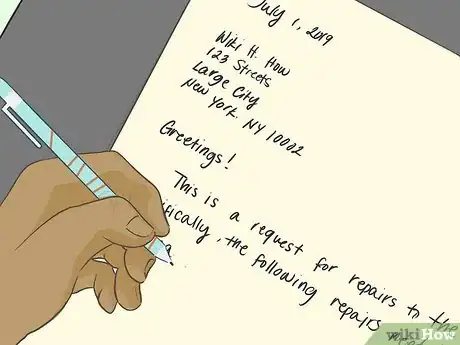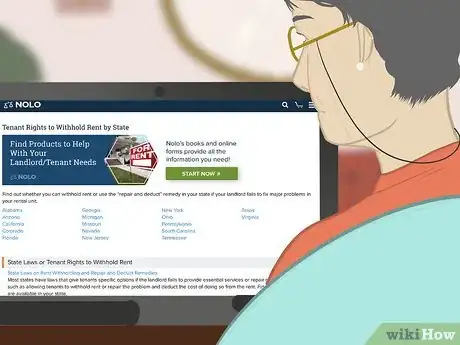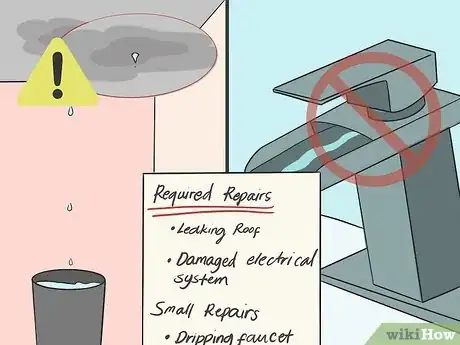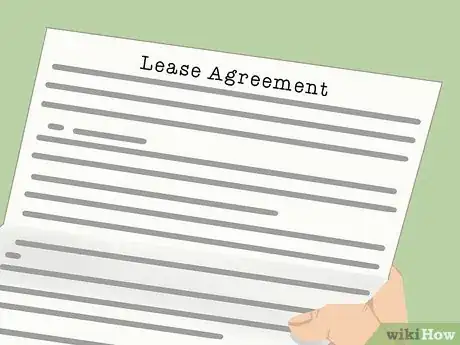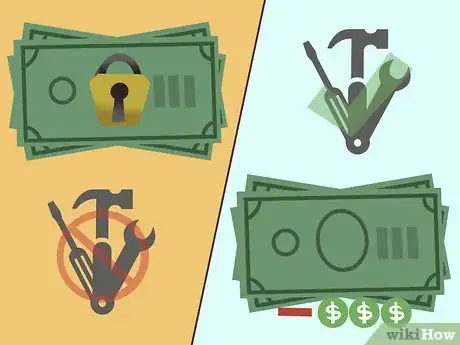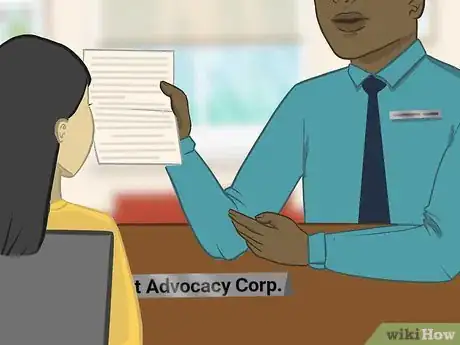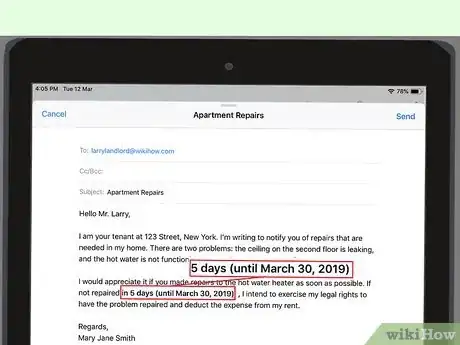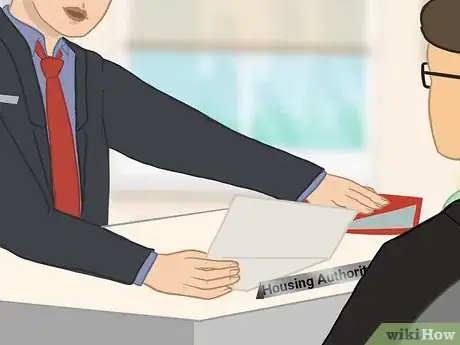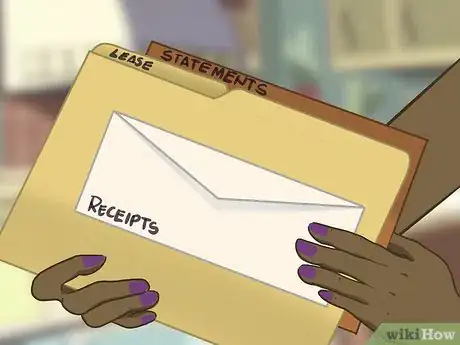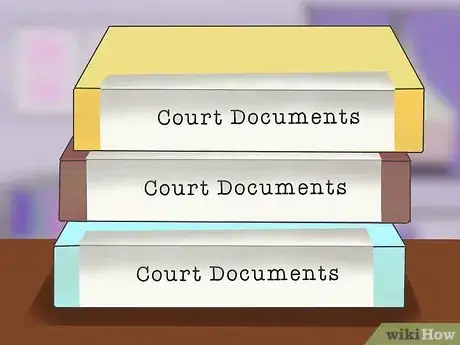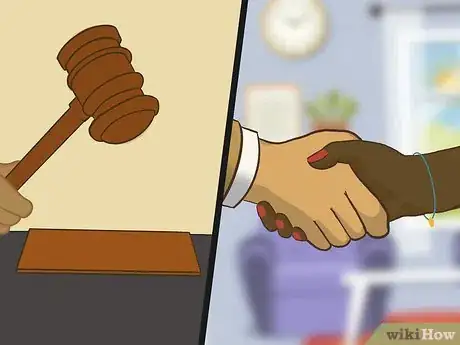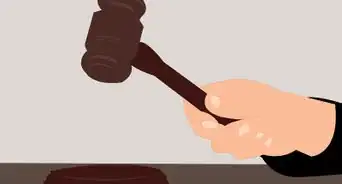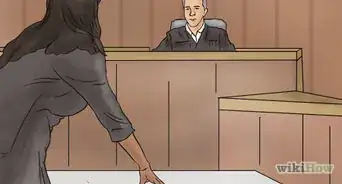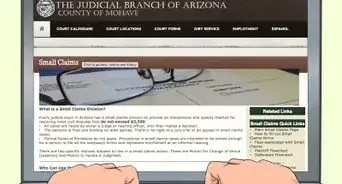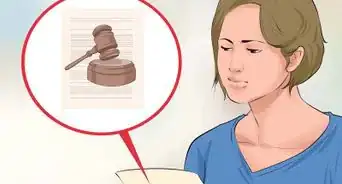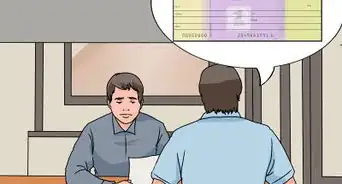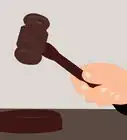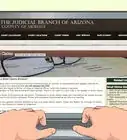This article was co-authored by Clinton M. Sandvick, JD, PhD. Clinton M. Sandvick worked as a civil litigator in California for over 7 years. He received his JD from the University of Wisconsin-Madison in 1998 and his PhD in American History from the University of Oregon in 2013.
wikiHow marks an article as reader-approved once it receives enough positive feedback. In this case, several readers have written to tell us that this article was helpful to them, earning it our reader-approved status.
This article has been viewed 94,383 times.
All landlords have legal responsibilities to maintain rental properties that are fit for people to live in—this is referred to as a warranty of habitability. If your landlord fails to make necessary repairs to your apartment to ensure that you have heat, hot water, properly running electric and plumbing, or fails to hire an exterminator to deal with pest infestations, you may have legal grounds to withhold your rent. All states have their own laws stating if and when you can withhold rent. Once the repairs are completed you will most likely have to pay the withheld rent, so be sure to keep it in a separate account as directed by your state law. It is very important that you take the appropriate legal steps if you decide that you are going to withhold rent.
Steps
Determining Your Legal Options
-
1Notify the landlord in writing of the need for repairs. If you haven’t already done so, you must notify the landlord in writing about the need for repairs to your apartment. Your letter should contain the following information:
- In detail, describe the issue in your apartment and why you need the repairs.
- If you previously left messages for your landlord or discussed the problem, set forth all of the times that you previously notified the landlord of the problem
- If this is continuing problem that the landlord only partially fixed, detail all of the previous repairs and request a more permanent solution to the situation.
- If there is a potential for injury or the needed repairs make it difficult or impossible to properly reside in your apartment (no hot water, toilet doesn’t work, etc.) explain the situation in detail in the letter.[1]
- Make sure that you keep a copy of your letter and consider sending the letter by certified mail so that you have proof of delivery.
- You can find a sample request for repair letter at: http://www.communityactionatwork.org/tenant-support/for-tenants/forms/repair.html.
-
2Review your state’s landlord tenant laws. If your landlord fails to make the necessary repairs, you should review your state’s landlord tenant laws so that you have a clear understanding of the landlord’s responsibilities and the circumstances under which you can withhold rent, reduce rent, or have the problem repaired and deduct the cost from your rent. You can find a list of state-by-state laws regarding rent withholding and landlord/tenant rights and obligations here: http://www.nolo.com/legal-encyclopedia/tenant-rights-withhold-rent-state. Generally, you are reviewing your state’s laws for the following:
- The reasons that legally allow you to withhold your rent, such as structural repairs or repairs to the electricity or plumbing.[2]
- Whether you are required to give the landlord a certain type of notice and how long they have to make the repair before you can withhold rent.
- Whether you are required to place the withheld rent in a separate bank account or deposit it with the local housing authority.[3]
Advertisement -
3Evaluate your apartment for required repairs. In order to determine whether the landlord is required to make repairs to your apartment, you must inspect your property and detail all of the necessary repairs. Once you outline the repairs needed, you need to divide the list into repairs that must be made legally and small repairs that you would like the landlord to make but that he is not legally obligated to repair. You can only withhold rent for repairs that are legally required. When making your list, consider the following:
- Your landlord is required to make all repairs to ensure that your home is habitable. These repairs include, structural repairs (the ceiling has a big hole in it), repairs to leaking roofs, provide hot and cold water, ensure that the plumbing, heating and electrical systems are working and safe. The landlord must also hire an exterminator to get rid of bug or rodent infestations unless you caused the infestation.
- Landlords may also be required to provide and maintain smoke detectors, sprinkler systems, and window guards. Failure to do so may make the home unsafe and uninhabitable under the laws of your state.
- Landlords are not required to fix dripping faucets or running toilets, small cosmetic problems such as a small hole in the carpet or scrapes on the floor, unless these repairs are required under your lease.
-
4Review your lease. Your lease is the legal contract that you entered into with the landlord that outlines both parties’ rights and obligations, in addition to those that may be legally required. Review your lease to determine what, if any, obligations your landlord has to make minor repairs and any specific responsibilities for repairs that you may have assumed under the lease as a tenant.[4] .
Withholding Rent or Repairing and Deducting the Cost
-
1Determine the best legal recourse—withhold or repair and deduct. If your landlord continues to fail to make necessary and legally required repairs, you must decide what steps that you want to take next. A review of your state should have indicated for you whether you are able and under what circumstance that you can either withhold rent completely until repairs are made or if you can pay someone to make the repairs and deduct the cost of the repairs from the next month’s rent. When choosing between the two options, if both are allowed by your state, review the following practical considerations:
- Can you safely remain in your home while you await legally required repairs? If you answer yes, then choosing to withhold rent may be an option.
- If you cannot safely or practically (i.e. no running water) remain in the home, determine whether you can afford to make the necessary repairs. It may be helpful to have a professional come out and evaluate the problem and give you an estimate on the work. You can use the estimate to determine whether you can afford to pay for the repair and include the estimate in your next letter to your landlord.
- If you can afford to make the repair, it may be easiest to have the repair done and then deduct it from your next month’s rent, provided that you are entitled to repair and deduct under state law.
- If you cannot afford to make the repair or safely remain in the property, you should contact a local tenant’s rights association or your local housing court to discuss your options.
- If you choose to withhold rent, be sure that you review your state law’s to determine if you need to deposit the rent with a specific housing agency. If you are not legally required to do so, it may be in your best interest to open a separate account and keep all withheld rent payments in this account. If you need to go to court, you can demonstrate that you had the ability to pay and that you were diligent in maintaining your rent.
-
2Speak to a tenant’s advocacy organization. Before taking the next steps against your landlord, it may be helpful to speak with a tenant’s advocacy organization. These organizations will be intimately familiar with your legal options, may have information about your landlord’s failure to maintain other properties, and may be able to give you advice on how best to proceed. You should explain the situation in depth and discuss how you plan to proceed against your landlord. The organization may even be willing to review your draft letter to your landlord or provide you with sample letters or how-to guides on how to proceed against your landlord.
- You can usually locate these organizations online by searching for your city or state’s name and “tenant advocacy group” or tenant’s rights.
-
3Notify your landlord in writing of what you intend to do. Whether you have decided to withhold rent completely or pay for the repairs and deduct the cost from your next month’s rent, you must notify your landlord in writing and give them a brief opportunity to correct the problem. When drafting your letter, consider the following::
- Set forth in detail the repairs that you are requesting.
- Describe your previous requests to have the landlord fix the problem. Include all of the dates you contacted the landlord, if possible, and attach your previous letter requesting the repairs.
- Reference your state’s laws that require the landlord to make the repairs and allows you to either withhold rent or repair and deduct the cost of repairs from your rent.
- Set forth a date by which the legally required repairs must be made.
- Describe the action you intend to take if the landlord fails to uphold his responsibilities (withhold or repair and deduct).
- Include a copy of the estimate for repair, if applicable.
- Send the letter by certified mail, return receipt requested.[5]
- Be sure that your letter conforms to all of the requirements set forth in your state laws and that you are legally justified in demanding repair.
- You can view sample letter to withhold rent here: http://www.nolo.com/legal-encyclopedia/sample-letter-landlord-you-intend-withhold-the-rent.html
- You can view sample letters to repair and deduct at: http://www.palawhelp.org/resource/deduct-repair-tenants-right-to-a-safe-and-dec?ref=2FZB4
Involving Local Housing and Authority and the Courts
-
1Report your landlord to the housing authority. If, after your last notice, the landlord fails to make the repairs, you should take the action you stated (withhold rent or repair and deduct) and contact your local housing authority.[6] The local housing agency can come to your home, document the need for repair, and even fine your landlord for violations of the housing code. This documentation may be useful if you have to proceed to court against your landlord.
- You can find your local housing authority by conducting an internet search for the name of your town and “housing authority.”
- Review the website for how to report a landlord and request an inspection or call the housing authority and ask how best to proceed.
-
2Gather evidence. It if appears that you will need to go to court to force your landlord to make repairs to your property, you want to gather as much evidence as possible to make your case. This evidence may include:
- Your lease and any lease renewals.
- Cancelled rent checks, electronic transfers or money order receipts.
- All correspondence between you and your landlord about the repairs.
- Any reports from the housing agency about the necessary repairs.
- Any estimates you received about the cost of repair.
- Witness statements from people who saw your apartment and can speak about the required repairs.
- Witness statements from people who provided you with assistance because your home was not habitable (such as people who you had to stay with or use their shower because of the lack of repair).
- A list of problems with dates and the landlords failure to make timely repairs.
- Photographs of the damage or the condition of your apartment.[7]
-
3Prepare and file court documents. If your landlord refuses to repair the property even after you withheld rent (if you chose to repair and deduct you have already been reimbursed for the work), you may have to file a court action to force the landlord to make the repairs.
- Contact your local housing court and ask where you need to file your action. Many housing courts have streamlined procedures to resolve landlord tenant disputes and can even provide you with a packet of documents that you need to file in order to start your legal action against the court.
- If there is no streamlined procedure for housing disputes, you may have to file a lawsuit against your landlord. Be sure to follow all local rules and regulations required for filing a lawsuit.
-
4Wait for the court’s ruling or mediate the action. After you present your evidence in court, the judge will either enter a ruling or you may choose to separately meet with the landlord to try and resolve your dispute before the ruling is entered—this is called mediation.
- Regardless of how you choose to proceed, you should argue that you should not be required to pay the landlord all of the withheld rent since your standard of living and hardship were so great during the time the landlord refused to make legally required repairs.
Warnings
- Do not attempt to withhold rent if you receive government rental assistance. You must report any problems with your landlord to the government entity that provides the rental assistance and let the government agency handle the issue. Otherwise, you risk losing your benefits.⧼thumbs_response⧽
References
- ↑ http://realestate.findlaw.com/landlord-tenant-law/a-tenant-s-rights-to-landlord-repairs.html#sthash.QczHNKXj.dpuf
- ↑ http://realestate.findlaw.com/landlord-tenant-law/the-legal-standard-for-repairs-warranty-of-habitability.html#sthash.ytCO9oIq.dpuf
- ↑ http://www.nolo.com/legal-encyclopedia/how-rent-withholding-works.html
- ↑ http://realestate.findlaw.com/landlord-tenant-law/a-tenant-s-rights-to-landlord-repairs.html#sthash.QczHNKXj.dpuf
- ↑ http://www.nolo.com/legal-encyclopedia/how-rent-withholding-works.html
- ↑ http://realestate.findlaw.com/landlord-tenant-law/a-tenant-s-rights-to-landlord-repairs.html#sthash.QczHNKXj.dpuf
- ↑ http://www.nycbar.org/pdf/report/tenantsguide.pdf
About This Article
If your landlord has failed to keep your home in good shape or provide basic necessities like heat and water, you may be able to withhold rent from them. Before you withhold rent, make sure you notify the landlord in writing about the repairs that need to be done so they can’t claim they didn’t know about it. You should also check your state’s tenant laws to make sure you’re legally allowed to withhold rent. Let your landlord know in writing that you intend to withhold rent, then give them a deadline for fixing the repairs. If they don’t respond or make the repairs, you can either withhold all of your rent until the repairs are made, or hire someone to get the repairs done and subtract the fees from the rent you pay. If you’re not sure what the best route is, speak to a tenants advocacy group in your area. They’ll be able to help you take the proper steps for withholding rent. To learn how to take your landlord to court, read on.
